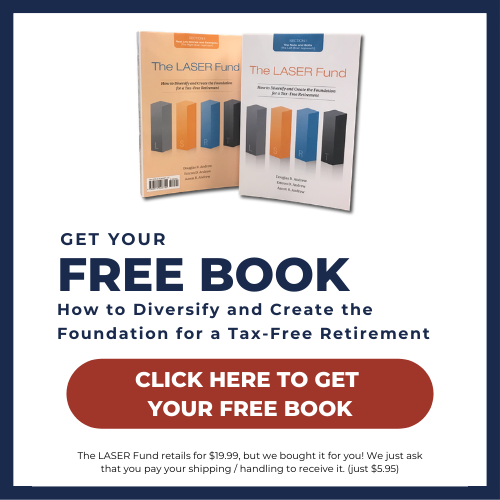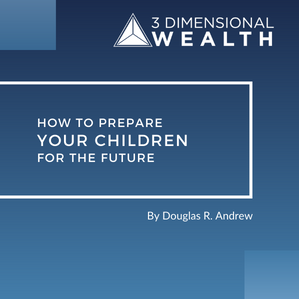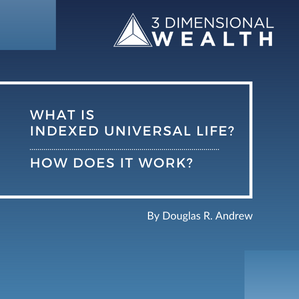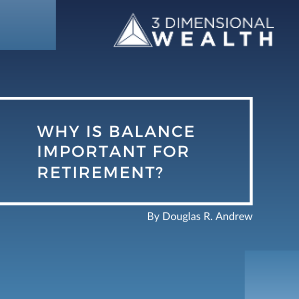4 WAYS TO ELIMINATE ENTITLEMENT
Hi, Doug Andrew Here.
In a recent article that was published in “Thrive Global,” a publication created by Arianna Huffington—it was called “4 Ways to Eliminate Entitlement”—[I shared] the inspiration that came from a book.
[This was] a book that I devoted my entire lifetime and learning in creating, that I released in 2017 called “Entitlement Abolition.” They were interested in my take on how to eliminate entitlement.The subtitle of this book is “How to Lead Your Family from Me to We.” This can also apply to your business, your employees, or anybody that you care about, because together we’re better.
One of the concepts in the article is to be aware of the plague of, “What’s in it for me?” or “When do I get my share?” Oft times, I would find very affluent clients thinking that, “It doesn’t matter how much we end up with as long as the government gets less.”
They would start gifting a lot of their assets to their kids and grandkids, and they didn’t realize how it was hurting them. It oft times would encourage extraordinary consumption, discourage saving money, and it would take families from “We to Me,” as in, “When do I get my share?”
This motivated me to begin to empower my clientele with “equal opportunity” living and, if they had a trust, to equal opportunity rules of governance in their trust, instead of equal distribution.
Because I realized that there was nothing more unequal than the equal distribution to unequals.
Our Creator does not do that. Our Creator does not give equal distribution of health to all of His children regardless of how they may abuse their body, or take harmful substances in, or how they take care of themselves. No, we have equal opportunities but not distribution.
As I began to explain this to clients, they began to realize that this was empowering their children and grandchildren instead of enabling them. We helped them set up ways to learn how to capture knowledge, attitudes, skills, and habits—and to avoid the scarcity mindset and get rid of this fairness doctrine that says, “That’s not fair! I want my share!”
No, it’s based upon being responsible and accountable.
We call that “dealing above the line instead of below the line,” blaming or justifying or operating in shame by saying, “I’m not smart enough. Can I HAVE, and will you pay FOR?”
No, equal opportunities. Not equal distribution.
Unfortunately, traditional estate planning has become a process of 4 Ds.
So many attorneys would look at the estate and they would Divide up the assets. Then they would Defer, thinking that by postponing they’re saving on taxes or whatever. And then it would get Dumped, usually on ill-prepared heirs. And what would happen? It would Dissipate.
Wealth was transferred without a system that fostered responsibility and accountability.
We like to flip that to 4 Ps.
We want to Preserve, Protect, Perpetuate and emPower those that we leave this behind to.
This is why we help people create equal opportunity rules of governance, in order to preserve those assets and pass them on in perpetuity.
If you’re wondering how you can set up your trust to be equal opportunity instead of equal distribution, feel free to contact us. We’ll be happy to point you to an attorney who understands how to do that.
Also, if you would like a free copy of “Entitlement Abolition,” go to entitlementabolitionbook.com, enter the information, and we’ll be happy to send you a copy.
—————
ABUNDANT LIVING HIGHLIGHTS
Going from “Me to We” – To get our families from “Me to We,” it’s critical to:
- Eliminate entitlement
- Establish an Equal Opportunity Trust (rather than the traditional equal distribution approach)
- Encourage dealing above the line with responsibility and accountability vs. below the line with blame, shame, and justification
Estate Planning with the 4 Ps– When looking ahead to how you’ll transfer your wealth, avoid the traditional 4 Ds (Divide, Defer, Dump, Dissipate), and focus on the 4 Ps (Preserve, Protect, Perpetuate, emPower).
Podcast: Play in new window | Download
Subscribe: RSS




